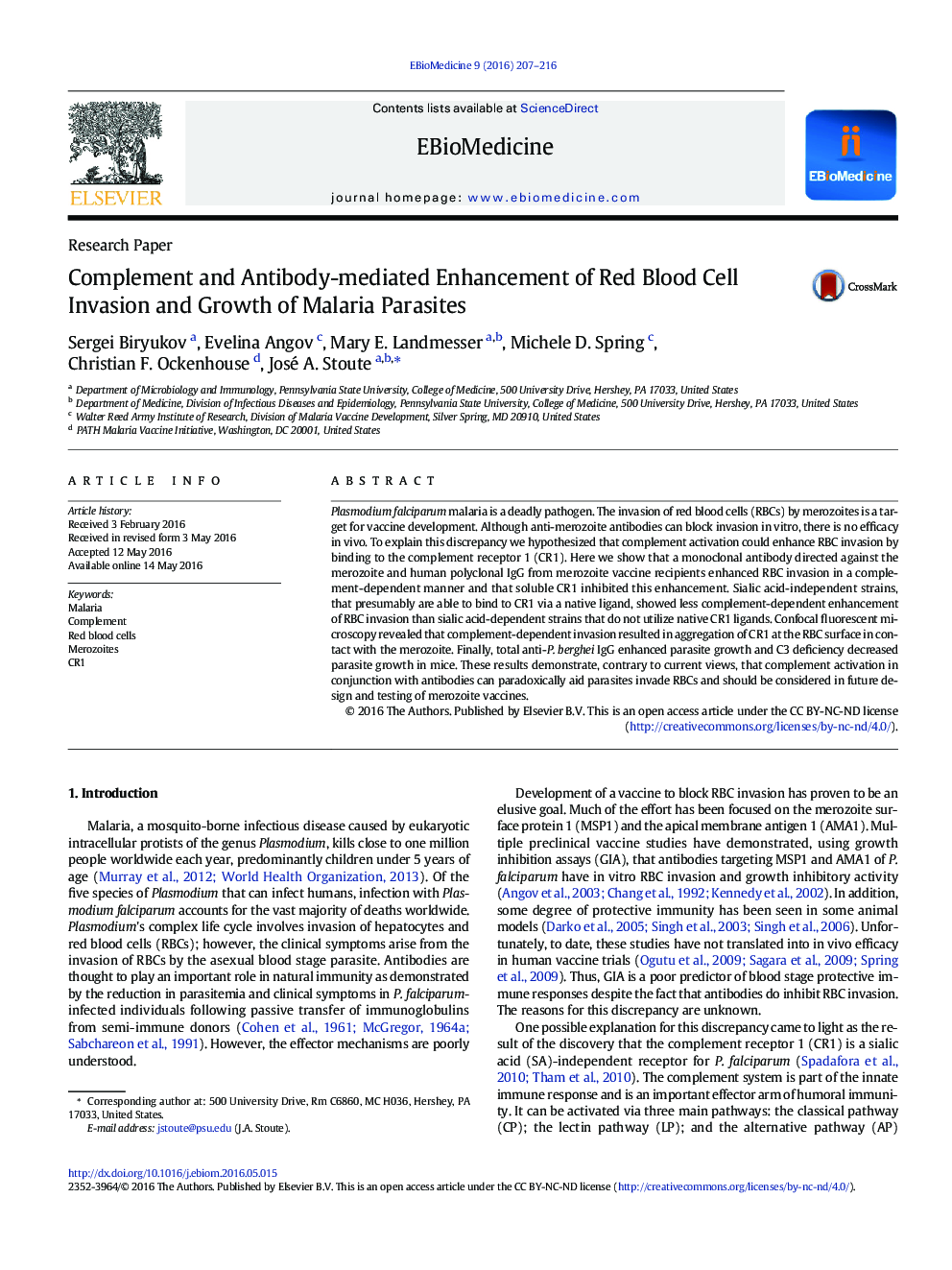| کد مقاله | کد نشریه | سال انتشار | مقاله انگلیسی | نسخه تمام متن |
|---|---|---|---|---|
| 2120718 | 1546890 | 2016 | 10 صفحه PDF | دانلود رایگان |
• Anti-merozoite antibodies and complement activation can paradoxically aid the malaria parasite invade RBCs.
• Complement receptor 1 on RBCs mediates antibody and complement-dependent invasion.
• The malaria parasite can use the immune response of the host to its own benefit.
• This information should be used in the design and testing of future anti-merozoite vaccines.The development of a malaria vaccine that blocks the invasion of red blood cells (RBCs) has been an elusive goal. While antibodies against merozoites, the invading stage of the parasite, can block RBC invasion in the test tube, tests in humans have been disappointing. We propose that one potential explanation is that the parasite is able to use part of the immune system to aid in the invasion of RBCs. Here we show that complement, a branch of the innate immune response, and anti-merozoite antibodies can enhance invasion of RBCs by malaria parasites. Therefore, this information should be taken into consideration in the future design and testing of anti-merozoite vaccines.
Plasmodium falciparum malaria is a deadly pathogen. The invasion of red blood cells (RBCs) by merozoites is a target for vaccine development. Although anti-merozoite antibodies can block invasion in vitro, there is no efficacy in vivo. To explain this discrepancy we hypothesized that complement activation could enhance RBC invasion by binding to the complement receptor 1 (CR1). Here we show that a monoclonal antibody directed against the merozoite and human polyclonal IgG from merozoite vaccine recipients enhanced RBC invasion in a complement-dependent manner and that soluble CR1 inhibited this enhancement. Sialic acid-independent strains, that presumably are able to bind to CR1 via a native ligand, showed less complement-dependent enhancement of RBC invasion than sialic acid-dependent strains that do not utilize native CR1 ligands. Confocal fluorescent microscopy revealed that complement-dependent invasion resulted in aggregation of CR1 at the RBC surface in contact with the merozoite. Finally, total anti-P. berghei IgG enhanced parasite growth and C3 deficiency decreased parasite growth in mice. These results demonstrate, contrary to current views, that complement activation in conjunction with antibodies can paradoxically aid parasites invade RBCs and should be considered in future design and testing of merozoite vaccines.
Graphical AbstractFigure optionsDownload as PowerPoint slide
Journal: EBioMedicine - Volume 9, July 2016, Pages 207–216
